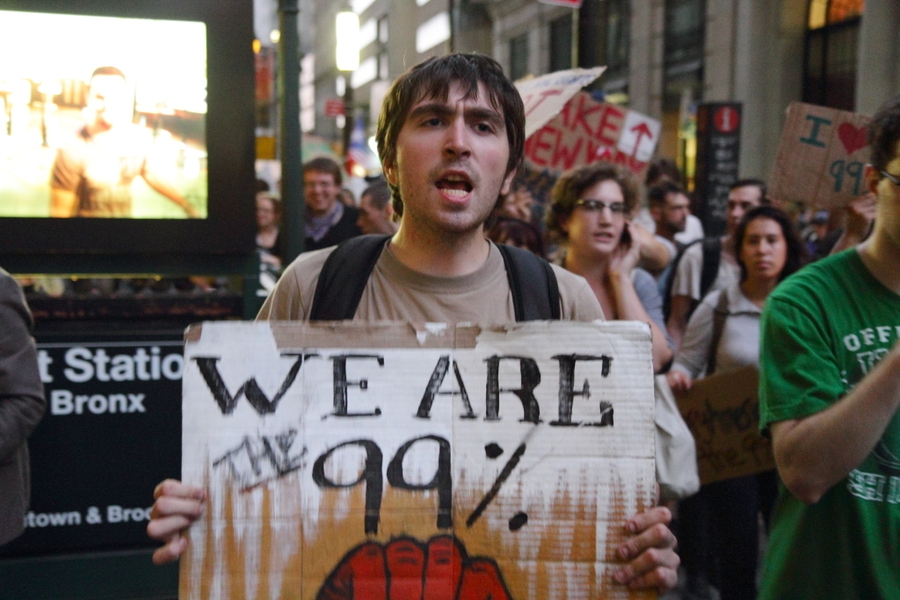 |
|
Members of the Occupy Wall Street movement protest massive inequality in the US in September 2011. (Wikimedia Commons)
|
Seoul recognized as “most positive story” of the year
For the first time, an index has been published that measures how much various governments have tried to resolve inequality in their countries. South Korea ranked fairly low, just 56th of the 157 countries in the survey. At the same time, Seoul did receive credit for its major raise of the minimum wage and its payment of grants to families with children, bringing it recognition as “the most positive story” this year. The Commitment to Reducing Inequality Index 2018, which was released by international relief organization Oxfam on Oct. 9, ranked South Korea as 56th place, next to the last among the 36 member states of the Organization for Economic Cooperation and Development (OECD). The lowest-ranking OECD member was Mexico, at 84th. The Commitment to Reducing Inequality Index, which Oxfam developed in partnership with non-profit research organization Development Finance International (DFI), measures and assesses the effort by various countries to reduce the gap between rich and poor in three categories: social spending on health, education and social protection; tax policy, including the corporate tax rate; and actions such as setting a minimum wage and guaranteeing labor rights. While South Korea ranked 56th overall, it scored more poorly in the area of tax policy, at 81st. South Korea placed 60th in social spending and 61st in guaranteeing labor rights. First place was overall was Denmark, followed by Germany, Finland, Australia and Norway. Since this index measures policy implementation, its findings might differ considerably from indices that measures the actual level of inequality. “Combating inequality [. . . is] about having the political will to pass and to put into practice the policies that will narrow the gap between the ultra-rich and the poor,” said Matthew Martin, director of Development Finance International. Starting this year, the index will be released on a yearly basis. In the report, Oxfam highlighted the story of South Korea. While acknowledging inequality in a country in which “over the past two decades the income growth of those at the bottom has stagnated while the top 10 percent have seen their incomes grow by six percent each year,” Oxfam explained that South Korea has taken meaningful steps to reduce this gap. As examples, Oxfam mentioned how Seoul had greatly increased the minimum wage, raised the highest bracket of the corporate income tax to 25 percent, and paid a child support grant. Indonesia, despite being ranked 90th, was also praised for raising its minimum wage by nine percent last year. This index was composed with data provided by the International Monetary Fund, the International Labour Organization and the World Bank. Tax policy and guarantees of labor rights draw upon 2017 figures, while the social spending category figures date back to 2015 and 2016. By Lee Ji-hae, staff reporter Please direct comments or questions to [english@hani.co.kr]






